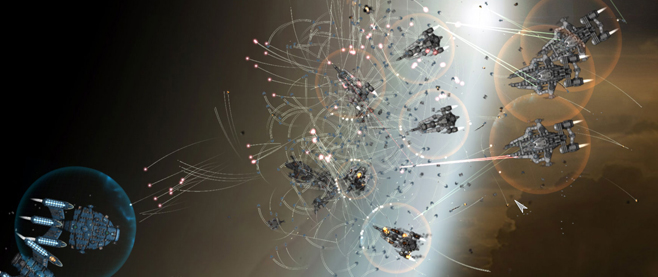
The Contradiction of Language in Subserial Network
E-soterica spotlights the indie darlings Khee Hoon Chan and Alyse Stanley just can’t stand to see players miss. Titles that buck convention, brave uncommon subjects, or whose strangeness begs players to stop and gawk. Join us each week as we scour the corners of the internet to share what treasure we find.
———
Editor’s Note: In the fall of 2018, developers who worked on Subserial Network revealed that the project lead is an abusive exploiter of labor. Unfortunately, at the time of publication, neither the writer nor Unwinnable’s editorial staff were aware of this charge – if we were, the essay would not exist in its current form. Unwinnable collectively supports fair labor practices and condemns abusive behavior in all its forms. While we stand by Khee Hoon’s essay, we believe it is impossible to discuss Subserial Network without at least noting the conditions in which it was created. Should we cover the game again in the future, that context will be central to the discussion.
———
Subserial Network is an abundance of words. Its very concept is about trawling through a subterranean network of words to get a vague impression of its goings-on—a dystopia set in a post-human universe. Adding a layer of complexity is how it introduces ideas and abstractions that aren’t immediately comprehensible, such as “subserials”, “serialization” and “machine guidance”. Since hints on navigating its virtual spaces are camouflaged in these passages, ploughing through these extracts is crucial to advancing through the game.
Yet it’s through making sense of these lexicon that you understand how they reinforce the themes of Subserial Network. One of its most brilliant moments lies in a piece of fanfiction, tucked away underneath layers of links in the webosphere. It’s based on an in-game drama series called “Under the Steel”, a gripping tale about synthetic beings whose lives are thrown into disarray due to a conspiracy involving a human, Hugo. This fanfiction is written from Hugo’s point of view, but his thoughts are worded in a manner that feels a tad unnatural and stilted. He described pain as being “registered in his hand”, use phrases such as “reconstruct himself mentally” rather than “imagine”, or refer to his brain as an object that’s not “functioning optimally”. It’s almost as if these words are being written by someone who is trying to understand how humans function, but can only see it through a more mechanical perspective—one they’re more innately familiar with. Through this short passage, there’s so much more that’s being conveyed than what meets the eye.

The use of language is instrumental to Subserial Network—a fascinating concept that’s rarely applied in other videogames. It’s utterly refreshing to see how certain words are specifically used to subvert our expectations of this world. Such details can be found throughout in its online spaces, from a personal blog about a synthetic’s startling discovery of the human whose identity they are created upon, to emails exchanges with other synthetics who discuss body modification to become more machine-like—so as to exist without a need for a physical body like an organic being. Phrases like “boolean”, “circuitry” and “ocular recalibration” are repeated liberally; they’re words that, in our own reality, has a note of impersonality and detachment. But in here, they carry a different connotation. They are infinitely more intimate, familiar terms used by synthetics to describe their own bodies. Conversely, I was taken aback when a synthetic referred to me as an “angel”, even as their words drip with undisguised anger and fear. It took me a while to realize that this was meant as an insult.
Even though the terminologies utilized may imply an idea of otherness, the synthetics’ experiences are universal enough to feel achingly familiar. The search for an identity of our own is a very human—or rather, authentic impulse, and the game’s overtones of fear and loss is incredibly relatable. Their struggles, of course, is also an analogy to the transgender experience and gender dysphoria. Here in the network is where these alienated synthetics gather, where they form sympathetic, underground communities that have parallels to real-life communities on the internet. While the vocabulary they embrace may appear foreign, the longing for a self they can be comfortable with resonates deeply—an emotion that can transcend languages and across realities.





